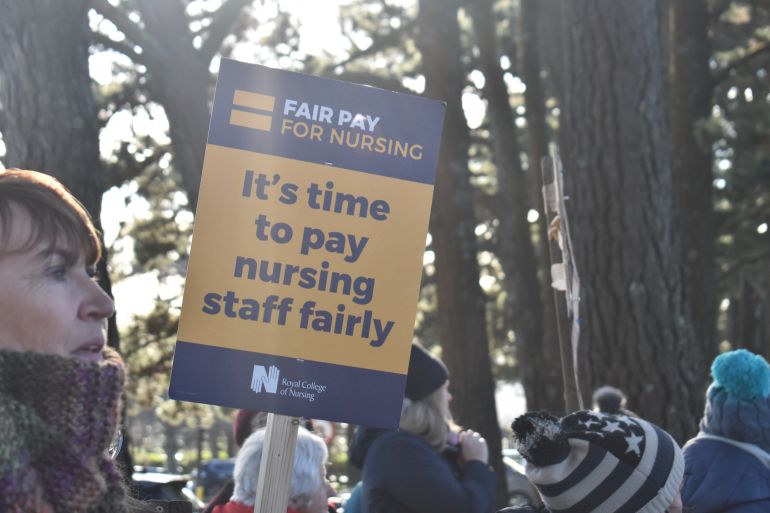When Lisa Jeffery was 21, she was rushed to the hospital, experiencing excruciating pain in her pelvis.
She was suffering from an ectopic pregnancy – a condition where a fertilised egg implants outside the uterus – and required life-saving surgery. Although the procedure was swift, and she was able to leave the hospital a few days later, the warmth and compassion of the nurses who cared for her left a lasting mark. “It all stemmed from that,” she says. “From then on, I wanted to look after other people who were poorly.”
After a nursing career spanning three decades and five hospitals, Jeffery, 53, is now at a twilight time in her professional life. As a ward sister, she runs a gynaecology and urology unit with her team of nurses in Cornwall, the UK. She could, by all accounts, be winding down towards a quiet retirement.
But Jeffery is joining legions of other British nurses making history in a series of national walkouts. In December 2022, the Royal College of Nurses (RCN), the country’s largest nursing union, began staging a series of 48-hour strikes.
Nurses from more than 44 hospital trusts in the UK – which are part of the publicly owned National Health Service (NHS) – withdrew from their wards and took to the picket lines.
READ ALSO: Why Australia wants nuclear-powered submarines
At the heart is a fight for fair pay – with the RCN asking the UK government for a 19 percent pay increase to keep pace with inflation and reflect the scale of work nurses take on every day. For Jeffery, this could be anything from a 37 to a 50-hour week of giving patients life-saving care.


